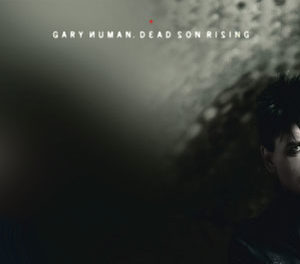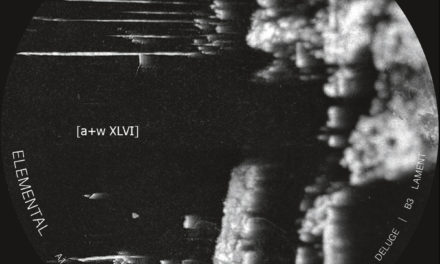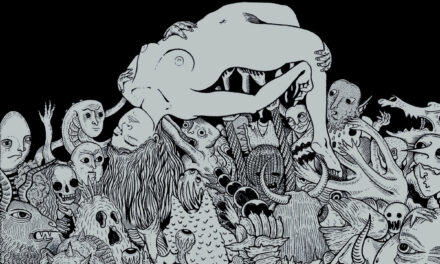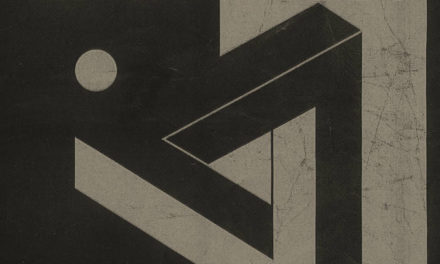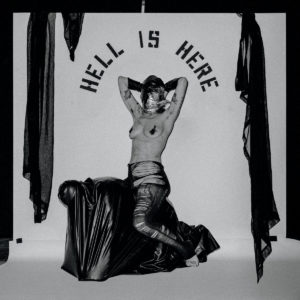
HIDE
Hell is Here
Dais Records
The last seconds of “Chainsaw”, the opening track on HIDE’s sophomore album, are a recording of vocalist Heather Gabel vomiting. If that sounds gross to you, know that by the time the clip arrives, preceded by two and a half minutes of Gabel reciting a litany of catcalls and street harassment, it’s a relief, a necessary act of release. And that’s Hell is Here in all its literal glory; it’s an acrimonious record about fraught subjects, and a release valve for the feelings those subjects engender.
Gabel and bandmate Seth Sher are if anything more violently minimal here then on last year’s excellent debut LP Castration Anxiety. Where that record’s combination of samples, drum programming and synth noise was spartan and gruelling, in comparison to Hell is Here it feels positively spritely. Most of the new tracks are constructed from looping blasts of degraded noise and unrelenting drums, occasionally bordering on power electronics in terms of extremity but mixed with an unusual clarity. “Half-Trash” plays out as a nasty marriage of rhythmic noise and industrial techno tropes, with scraping static and nightmare string sounds skipping across the top of a toppling drum loop. Elsewhere “Pain” twists together a mess of percussion elements into an lurching arrangement, the unnatural rhythm punctuated by distant drones.
Gabel for her part doesn’t sit atop the record’s ugliness so much as she inhabits it. Despite the brief gestation between records she sounds distinctly angrier and more battleworn here than on the band’s debut. Partially that’s a function of how hard she throws herself into each and every word and syllable. Whether drawing out the title of the record on “Hell” with the tone of a dull knife being put to the grindstone, driving home the ‘self’ in “self-destruct” on “SSSD” or summoning absolute contempt as she intones “I sharpened my teeth for this” on “Raw Dream” there’s scarcely a moment where she isn’t making her presence (or temporary absence) felt. There’s a directness in her delivery that feels essential to the understanding of the LP; the lyrical themes of misogyny, objectification, self-governance and defiance are processed via Gabel’s willing vulnerability in confronting them.
It’s hard to think of Hell is Here as a piece of art you would interact with for enjoyment. Its power lies in a sense of release and bitter commiseration. It’s not hard to imagine how these songs will play in a packed room of people as executed by Gabel and Sher in their notoriously bellicose live incarnation. For an LP that sounds at first blush like it’s trying to push the listener away, it ultimately ends up playing as communion. Hell might be here, but HIDE are here with us to meet it.


